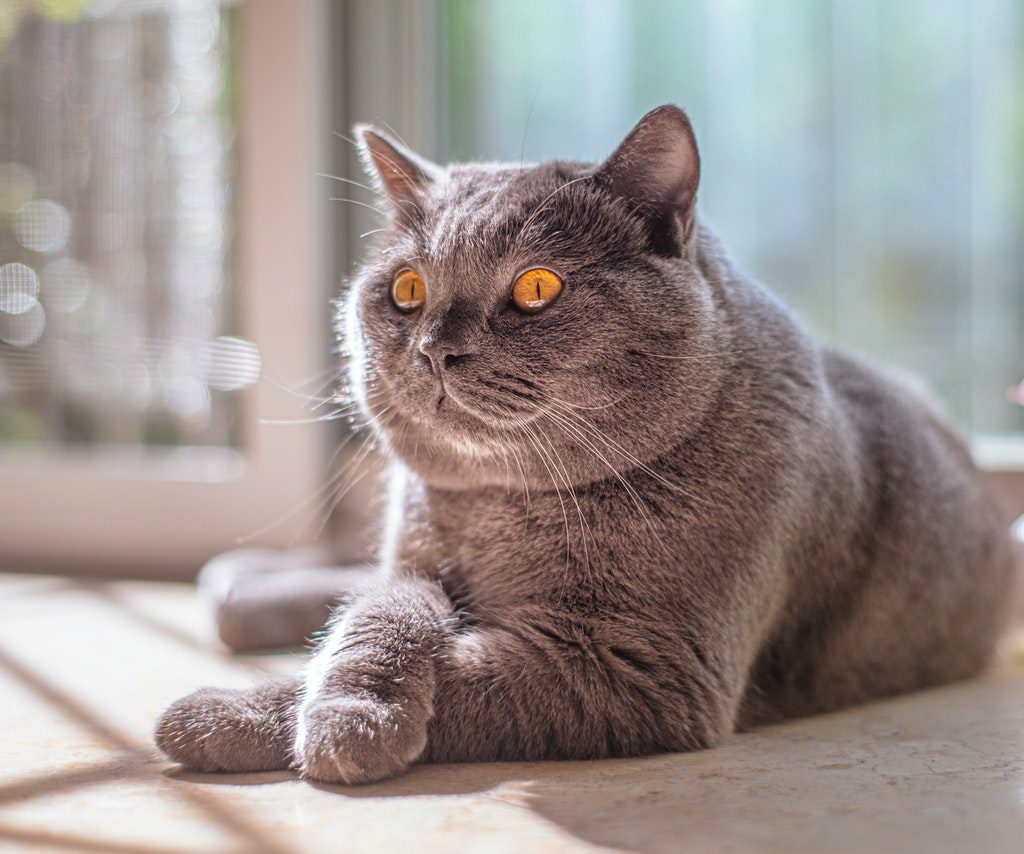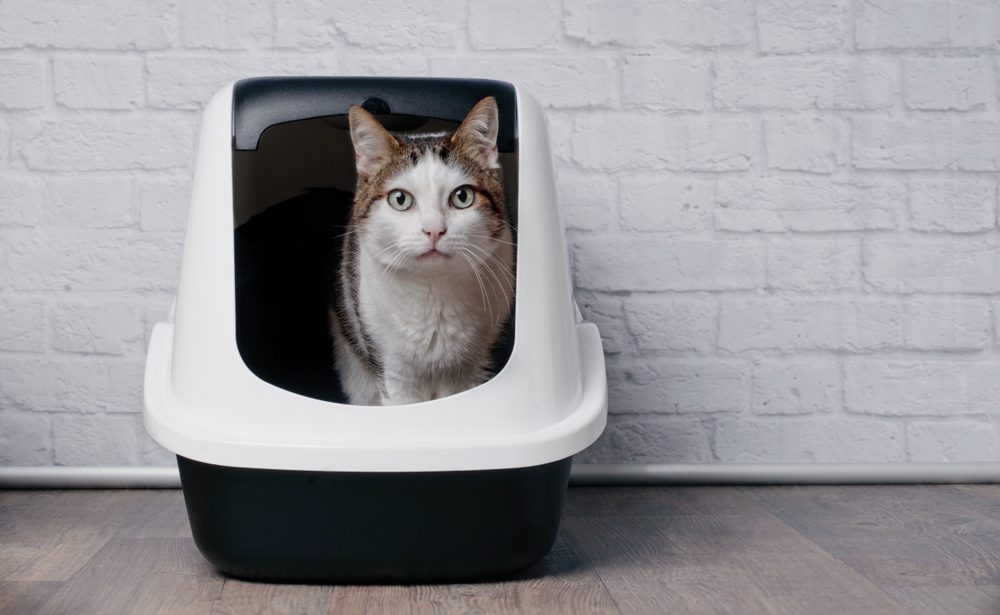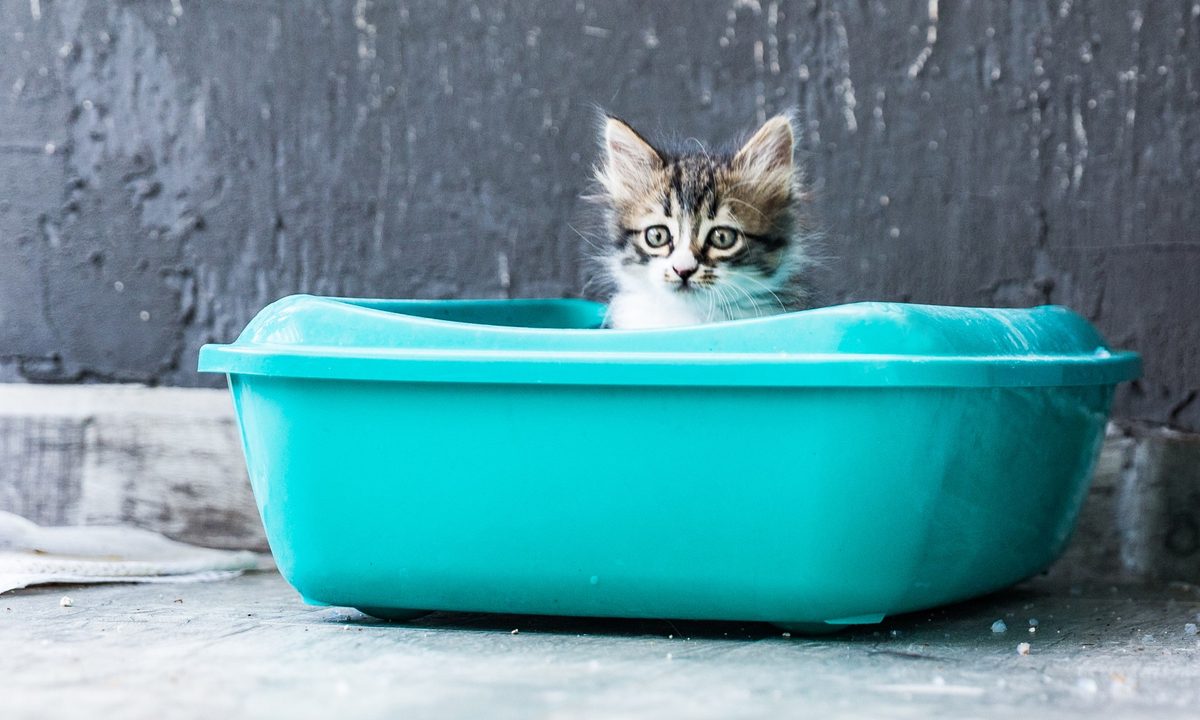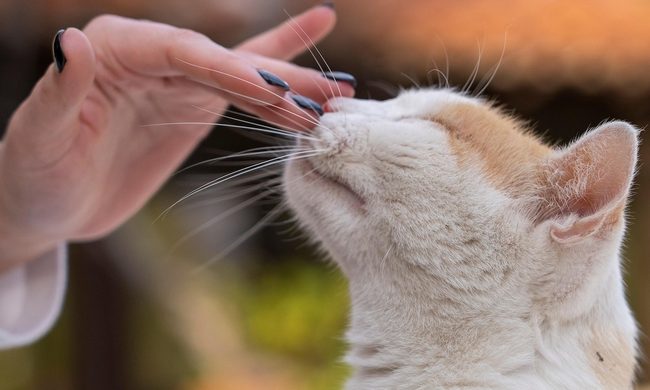Talk to any feline owner, and they’ll tell you their least favorite part of the job is cleaning the cat's litter box. Nobody likes scooping out waste, but it’s a necessity (especially if you don’t want to be cleaning pee out of your favorite shoes). But once the chore is done, what do you do with it? Keep reading to learn how to get rid of used cat litter safely.
You might be wondering what your options are for getting rid of used cat litter. While it may seem more environmentally friendly to compost or flush litter, the best way to get rid of old litter is simply to throw it out.

How to safely dispose of used cat litter
You must scoop the litter box at least once a day to remove large clumps of urine and other waste. Read on to learn how to ensure a clean litterbox. Your cat will thank you.
Step 1: Scoop the waste into a small trash bag.
Make sure to use durable trash bags, as litter can become quite heavy. Here are some tips for making this task as mess-free as possible:
Consider getting a dedicated trash barrel for the litter box. This way, you can quickly dispose of the waste without carrying your kitchen barrel around the house.
Prevent spillage by putting the bag in a trash can before disposing of the litter. If you’ve tried dumping the box while holding a trash bag, you already know how difficult and messy it can be. Without a trash can, it’s far too easy to spill dirty litter on the floor and yourself. The trash can will hold the bag open and steady for you, making it easier to pour out the litter.
Step 2: Tie the trash bag tightly.
This will help prevent odors and spillage.
Step 3: Place the bag in an outdoor trash can with a tight lid.
Don’t scoop the litter directly into your trash can and allow it to sit in your home. This can quickly become smelly and create an unpleasant atmosphere for you and your guests. Plus, every time you open the trash can, cat litter dust and feces particles can enter the air and cause health issues. Also, you should never dump your litter outside or try to burn it.
Is litter compostable?
While clay is the most common type of litter, many others on the market are made of different materials. You can now find cat litter made from corn, walnuts, newspaper, wheat, wood shavings, and more. While many of these materials are biodegradable, composting them may not be ideal.
Cat feces contains a lot of bacteria, many of which are even worse than E. coli. Some cats are infected by the protozoan parasite Toxoplasma gondii. The parasite is shed in their stool and can easily infect humans and other animals in the environment. Toxoplasmosis does not typically cause symptoms in healthy adults, but for pregnant women, it can lead to complications for the fetus. For this reason, you don’t want cat litter anywhere near your compost, especially if you plan to use it to grow food. If you only use compost in flower gardens, it may be safe to compost cat litter, but many feel it’s not worth the risk.

Can you flush cat litter?
Clay cat litter should never be flushed, as it can damage your plumbing. This is especially true for clumping clay litter, which can form serious blockages in your pipes. But what about other materials? While some biodegradable litters are marketed as being flushable, they can still impair your plumbing and worse.
Flushing cat litter is dangerous for the same reason that composting it is -- Toxoplasma gondii. Modern waste treatment plants are not designed to filter out the eggs of Toxoplasma gondii and other intestinal parasites often found in cats. As such, they can stay in the water supply and harm all those they come in contact with. In fact, T. gondii has recently been linked to illness and death in California’s population of sea otters. To protect the otters, California passed a law requiring all litter sold in the state to come with a warning against flushing it or dumping it outside near storm drains and gutters.
Ways to go green
Many cat owners are concerned with lowering their environmental impact. But if you can’t compost or flush your litter, what can you do? Here are a few ways you can be eco-friendlier when dealing with cat litter:
Use biodegradable litter. It can help reduce your carbon footprint, even if you can’t compost or flush it. Paper- and corn-based litters break down faster than clay litters, which are not biodegradable.
Use clumping litter. Clay cat litter is produced by strip-mining. If your cat will only use clay litter, use a clumping type as this creates less waste.
Use biodegradable poop bags or paper bags instead of plastic bags.
Keep your cat indoors. This will prevent them from spreading T. gondii in your neighborhood and protect the native wildlife.
When it comes to getting rid of old cat litter, it’s best to keep it simple: Throw it away. Composting or flushing it can do more harm than good. By scooping it out regularly and disposing of it properly, you can keep your home clean and your kitty happy.





